Sunset, Sunday, 20 September 2009
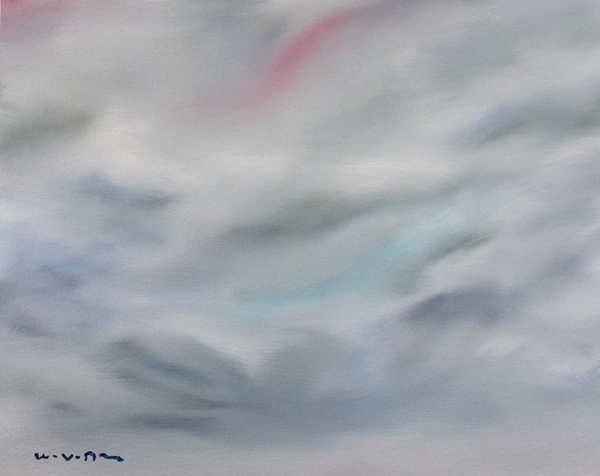 William Theodore Van Doren. Stony Point, Albemarle County, Va. Oil on paper, 16 x 20.
William Theodore Van Doren. Stony Point, Albemarle County, Va. Oil on paper, 16 x 20.
This is what they call ‘Mostly Cloudy’.
Sometimes I wonder what Thoreau would have done, or how he might have done, if he’d been in the position of issuing blog postings every day from Walden Pond. I mean, wouldn’t there have been quite a few days when he would have been unable to think of anything more to say than “Jesus, it’s cold!” or “Harvested 3 bu. beans ... swam across pond ... listened to bullfrogs”?
Henry David strikes me as the deliberative sort, probably not the easiest or most fluid of writers. He wrote about half of Walden while he was living at the pond, between 1845 and 1847, but then went through seven drafts before publishing the book in 1854. As you probably know, it was a failure, commercially.
But I do wonder also if it might not have helped Thoreau to have the kind of daily imperative to communicate that many of us feel today. Thoreau took time to distill and compress, and in a sense elevate, his experiences into the book so many have come to know. But he also said, after Walden was published:
Is not the poet bound to write his own biography? Is there any other work for him but a good journal? We do not wish to know how his imaginary hero, but how he, the actual hero, lived from day to day.
I am happy to know that Thoreau could write this even as he was sitting in a house filled with unsold books. But speaking for myself, I know that if I’m a hero, it’s only in my own mind, and so I am strictly my own imaginary hero. And I find that learning how to write a ‘good journal’, and particularly to both write and publish in real time, can be extremely challenging. Those who can do it – hello again, Stephen Fry, Andrew Sullivan, James D. Griffioen, among others – these may be poetic heroes for our time.
 Sunday, September 20, 2009 at 08:10PM | by
Sunday, September 20, 2009 at 08:10PM | by  BVD | in
BVD | in  A Painting A Day,
A Painting A Day,  Sunset Paintings | tagged
Sunset Paintings | tagged  Andrew Sullivan,
Andrew Sullivan,  Henry David Thoreau,
Henry David Thoreau,  James D. Griffoen,
James D. Griffoen,  Stephen Fry,
Stephen Fry,  Walden,
Walden,  writing | | Comments Off
writing | | Comments Off 
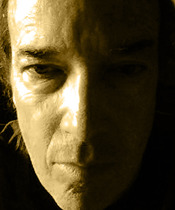
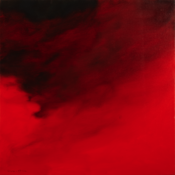
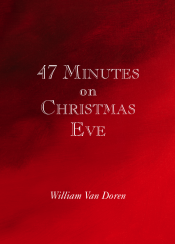
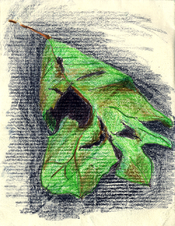

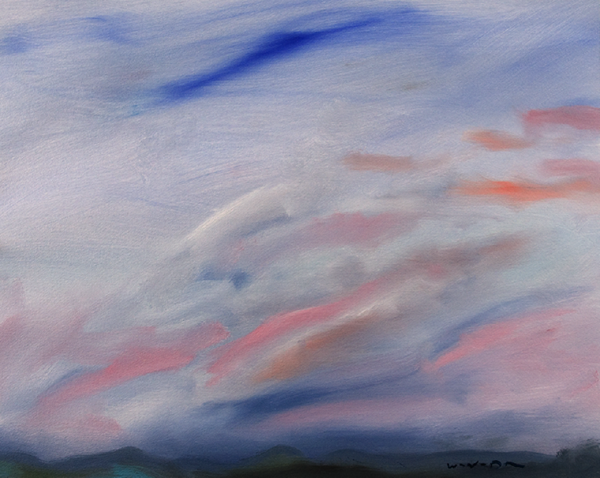
Sunset, Saturday, 19 September 2009
I think in raving yesterday about trivial aspects of the writing (and painting) process, I may have missed much of the reason why Sarah Bruce commended Stephen Fry’s post to me in the first place. But that’s what happens to arrogant, self-absorbed, preoccupied, creative people (guilty on three of four counts) – we often miss the point.
Much of Fry’s post was about how difficult writing usually is. Or, not so much writing itself, but getting it done, putting it all together, and especially when we’re talking about big projects like books. I hope I don’t overstep by quoting this much Fry:
Of course, as one would hope and expect, Fry goes on to say that if you’re encouraged by this and therefore become able to complete your project, it doesn’t guarantee anything about either the quality or the success of the finished product.
I have only one book under my own name – I’m currently in the throes of deciding whether my revision of it is good enough to publish. Aside from that, whether as a ghostwriter or rewrite editor or hybrid designer-producer-writer-editor, I’ve helped others write somewhere in the neighborhood of 75 to 100 books. (I have no idea of the exact number, it could be 71 or 119, because I have little vested in most of the projects and, with a few exceptions, pretty much forget them when they’re done – I don’t even have a list of them anywhere.) I find writing and rewriting intrinsically ‘easy’ but that’s deceptive – this is difficult (?!) to convey, but it’s both a challenging process and one that comes naturally. I tend to discount everything that goes into it. So I can forget the truth of what Fry is saying. But by the time an entire book is about done, one knows just how hard it’s been – especially if money and time are running out! It’s usually excruciating by the end.
I gained a real awareness of the blood, sweat and tears involved in my book-writing jobs a few years ago when I called on an old colleague, Jack Scovil, of Scovil Galen Ghosh literary agency in New York, who was present at the inception of my first assignment in 1973, and asked for advice in negotiating a ghostwriting agreement. Concerning my near-fatal tendency to undercharge, Jack said:
“Don’t forget, it’s you who are going to be doing all the back-breaking work.”
‘Back-breaking’ ... exactly! And ... amen.